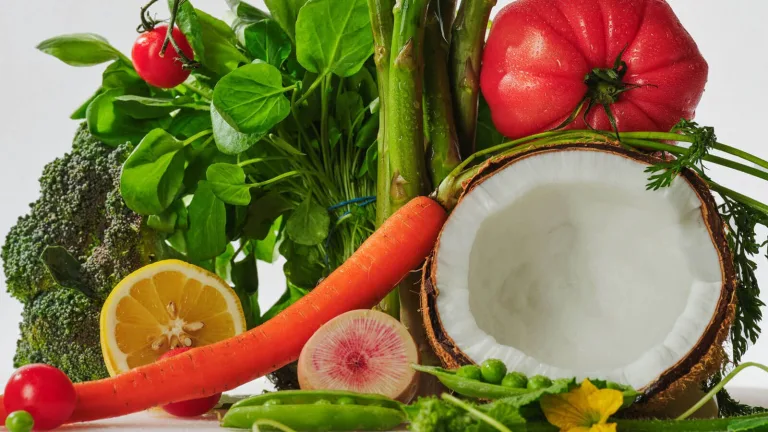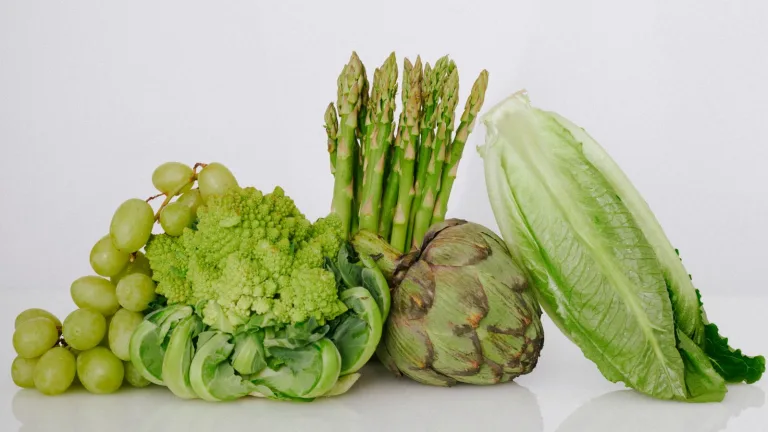It’s human nature to be captivated by beauty, color, and striking aesthetics.
By Alexa Bokman
•Jul 28, 2020
We’re sharing the colorful eating habits, nutrients, and ingredients that can transform your body—Sakara meals included

By Alexa Bokman
•Jul 28, 2020
Perhaps the most potent source of art comes straight from the earth; specifically, the 20,000 varieties of edible plants, each with their own unique shape, fragrance, and color palette. From a nutrition standpoint, we crave a sensual, visual feast because the body innately understands that each color provides its own set of powerful nutrients. Nutrients that give your body stamina, radiance, and an emboldened energy.
Eating a plate resembling the rainbow champions diversity, a key tenet of vibrant, full-body health. Here’s why:
The microbiome—a.k.a., the trillions of bacteria in and on the body—supports many functions to care about: mood, energy levels, sleep quality, cognitive function, even calorie absorption. The bacteria feed off of plants, specifically their prebiotic fiber. The greater the diversity in plants, and their breadth of bacterial strains, the healthier your GI tract, making a stronger system to beat pathogens and viruses.
While the macronutrient content of food—carbohydrates, protein, and fat—often get the spotlight, the real nutrition underdogs are phytonutrients. According to Dr. Deanna Minich, author of The Rainbow Diet, phytonutrients are the messengers to the cells and encourage our bodies to work synergistically. By some accounts, there are over 10,000 bioactive compounds in plants, many still unknown, that are allies in beating chronic diseases, cancers, and inflammation.
Sitting down for a beautiful meal is not only pleasurable for the soul, but a critical step in the digestive process. The aromas, the sight, and the mental preparation that occur before your first bite help to activate digestive enzymes and bile that help you properly absorb your food, eliminate it efficiently, and avoid after-dinner bloat. Age and a diet of predominantly processed foods can weaken digestive acids and their function; an array of colorful nutrients keep them humming.

Each color offers its own mix of phytonutrients and antioxidants, which is why our chef team keeps the full spectrum in play—just look at a menu in the Sakara universe, for dishes from “pink pitaya party rice” to “red pepper lemongrass curry.”These colors provide critical, body-loving nutrients. Below, a breakdown by color.
Reds and Pinks are rich with a carotenoid called lycopene, which has been shown to protect against heart and lung disease, boost testosterone and male fertility, and nourish DNA by fighting free radicals. Red and pink foods also contain astaxanthin, an antioxidant that acts like "internal sun screen" to protect against UVA and UVB radiation.
Find in: The Red Beet Burger
From a nutrition standpoint, our bodies crave a sensual, visual feast because the body innately understands that each color provides its own set of powerful nutrients.
Oranges and Yellows provide beta cryptoxanthin, which helps strengthen the communication within a cell, and includes properties known to fight chronic inflammation and heart-related diseases. Orange foods also contain bioflavonoids; these compounds work with vitamin C to protect the body against certain cancers and support healthy bones and teeth. A study also revealed that orange and yellow foods and their accompanying carotenoids may significantly delay early menopause.
Greens, especially leafy, cruciferous ones, contain blood-detoxifying chlorophyll, but are also chock-full of compounds that block carcinogens: sulforaphane, isocyanate, and indoles. In addition, green plants provide phytomethylators, which are critical for cellular growth and also strengthen the body’s ability to methylate, which relates to hormone metabolism, cognitive function, and DNA production.
Find in: Classic Chopped Salad
Blues and Purples offer powerful antioxidants called anthocyanins, which squash inflammation, are antimicrobial and antiviral, and serve to strengthen vision, memory, and cerebral blood flow. Because there is a smaller pool of edible plants with this deep shade, many health experts recommend choosing purple whenever possible—be it purple broccoli, a purple carrot, or deep, dark cabbage.
Science-Backed Solutions